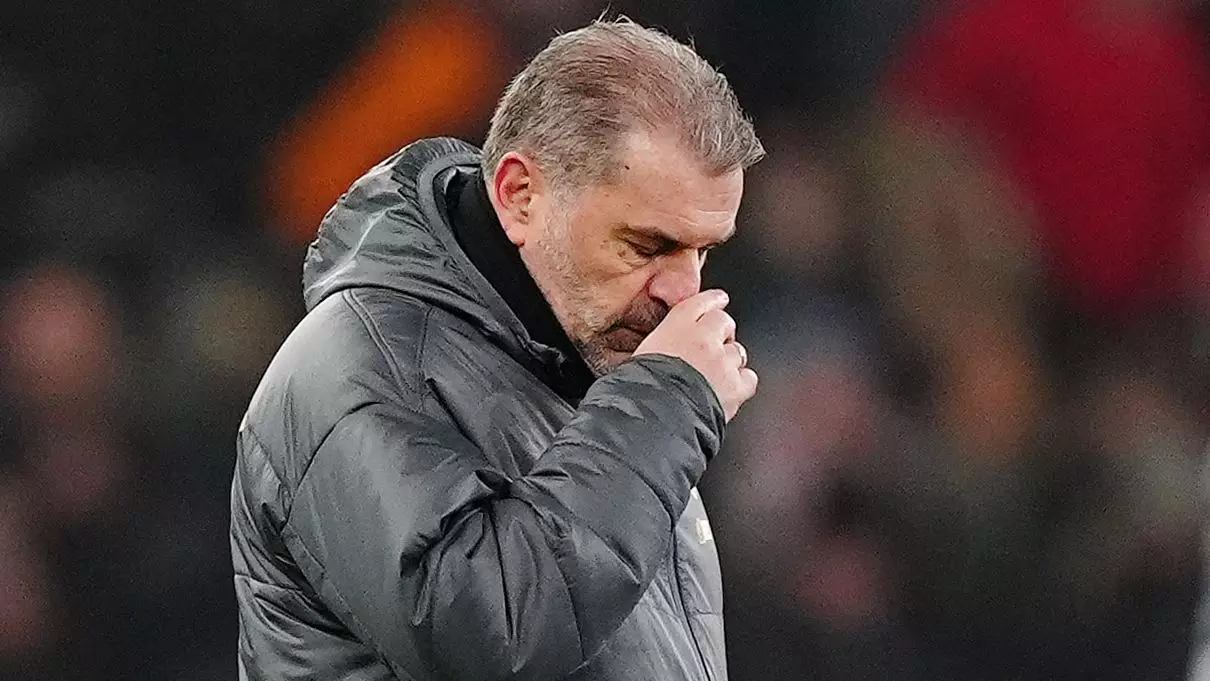The recent exit from two major cup competitions within a mere three-day timeframe has plunged Tottenham Hotspur into a troubling dilemma, underscoring the risk of another trophyless season. With a string of disappointing results and the mounting pressure on manager Ange Postecoglou, questions arise about the team’s future direction and the sustainability of the current management strategy.
Tottenham’s 2-1 defeat at Aston Villa in the fourth round of the FA Cup served as a bitter pill to swallow, especially following a demoralizing 4-0 loss to Liverpool in the Carabao Cup semifinals. These back-to-back exits not only compromise Tottenham’s short-term goals but also torch the hopes of fans yearning for a return to silverware. The initial confidence that surrounded Postecoglou’s tenure has begun to evaporate, as pressure surges surrounding performance and results.
Postecoglou himself articulated the disappointment, demonstrating a sense of responsibility for the team’s lack of incisiveness: “It wasn’t a great start… we really struggled to get some control.” His recognition that Tottenham failed to seize critical moments in the match further accentuates the team’s psychological barriers in high-pressure situations. A slow start can often breed a lack of confidence, ultimately enabling opponents to capitalize on any lapses.
The current campaign has been a challenging one for Spurs. Sitting in 14th position in the Premier League, the club seems adrift, and the only viable promise of major silverware rests on their performance in the Europa League, where they have reached the Round of 16. There is an ironic contrast to Postecoglou’s earlier optimism; he noted in September that historically, silverware has followed him in the second year at his respective clubs. Fans might be left wondering if that trend is about to break at Tottenham.
The team’s struggles can be attributed to numerous factors, including an unforgiving injury list. Key players such as Cristian Romero and Dominic Solanke have been sidelined, which has heightened the pressure on the squad. Tottenham has been forced to rely on a reduced player pool while facing multiple competitions simultaneously. The post-match acknowledgment from Postecoglou about his players’ commendable resilience emphasizes the toll that consistent match congestion can take on squad depth and morale.
As they look ahead, Tottenham must navigate this crisis with a careful balance of immediate performance and long-term strategy. Postecoglou remains optimistic despite recent setbacks, expressing gratitude for the commitment shown by players even in challenging circumstances. He pointed out the necessity for recovery and the anticipated return of injured stars: “They will get some opportunity to recover now…and we’ll look forward to resetting.” Such remarks reveal a commitment to foster a culture of resilience and adaptability.
However, his loyalty to the existing system will be put to the test in the coming weeks as results become paramount. The pressure mounts not only from expectations within the league but also from a demanding fanbase eager for a return to glory. The mention of young talent, like 19-year-old Mathys Tel, augurs towards a shift in strategy that could lean on youth to rejuvenate the squad. The forward’s recent goal against Villa represents a flicker of hope, yet it also raises concerns regarding the reliance on inexperienced talents at such a crucial juncture.
In essence, Tottenham Hotspur stands at a crucial juncture. With recent performances and the weight of expectations weighing heavily on the club, the team’s identity and competitive spirit will be rigorously tested. Whether or not Postecoglou can navigate his way through this maze of challenges while still satisfying the ambitions of an eager fanbase remains a question that many will be keen to see unfold. The time for introspection and recalibration is now, as Spurs strive not only for survival but for the chance at the glories that have eluded them for far too long.

